Portant ses tripes dans ses mains.
Sa mère étoit sur le créneau
Qui vit venir son fils Renaud.
Renaud, Renaud, réjouis-toi!
Ta femme est accouché’ d'un roi.
Ni de la femme, ni du fils
Je ne saurois me réjouir.
Allez ma mère, allez devant,
Faites-moi faire un beau lit blanc.
Guère de tems n'y démorrai,
A la minuit trépasserai.
Mais faites-l’ moi faire ici-bas
Que l'accouché’ n’ entende pas.
Et quand ce vint sur la minuit,
Le roi Renaud rendit l'esprit.
Il ne fut pas le matin jour
Que les valets ploroient tretous;
Il ne fut tems de déjeûner
Que les servantes ont ploré.
Dites-moi, ma mère, m’ ami’,
Que plourent nos valets ici ?
Ma fill’, en baignant nos chevaux
Ont laissé noyer le plus beau.
Et pourquoi, ma mère, m’ ami’,
Pour un cheval plorer ainsi ?
Quand le roi Renaud reviendra,
Plus beaux chevaux amènera.
Dites-moi, ma mère, ma mie,
Que pleurent nos servantes ici ?
Ma fill’, en lavant nos linceuls
Ont laissé aller le plus neuf.
Et pourquoi, ma mère, m’ ami’,
Pour un linceul plorer ainsi ?
Quand le roi Renaud reviendra,
Plus beaux linceuls achètera.
Dites-moi, ma mère, m’ ami’,
Pourquoi j'entens cogner ainsi ?
Ma fill’, ce sont les charpentiers
Qui raccommodent le planchier.
Dites-moi, ma mère, m’ ami’,
Pourquoi les seins sonnent ici ?
Ma fill’, c'est pour la procession
Qui sort pour les Rogations.
Dites-moi, ma mère, m’ami’,
Que chantent les prêtres ici?
Ma fill’, c'est la procession
Qui fait le tour de la maison.
Or, quand ce fut pour relever,
A la messe el voulut aller.
Or, quand ce fut passé huit jours,
El voulut faire ses atours.
Dites-moi, ma mère, m’ ami’,
Quel habit prendrai-je aujourd'hui?
Prenez le blanc, prenez le gris,
Prenez le noir pour mieux choisir.
Dites-moi, ma mère, m’ ami’,
Ce que ce noir-là signifi’?
Femme qui relève d'enfant,
Le noir lui est bien plus séant.
Mais quand el fut emmi les champs,
Trois pâtoureaux alloient disant :
Voilà la femme du seignour
Que l'on enterra l'autre jour.
Dites-moi, ma mère, m’ami’,
Que dient ces pâtoureaux ici ?
Ils nous dient d’avancer le pas
Ou que la messe n'aurons pas.
Quand el fut dans l'église entré’,
Le cierge on lui a présenté;
Aperçut, en s'agenouillant
La terre fraîche sous son banc.
Dites-moi, ma mère, m’ ami’,
pourquoi la terre est rafraîchi’?
Ma fill’, ne l’ vous puis plus celer,
Renaud est mort et enterré.
Puisque le roi Renaud est mort,
Voici la clé de mon trésor.
Prenez mes bagues et joyaux,
Nourrissez bien le fils Renaud.
Terre, ouvre-toi, terre, fens-toi,
Que j'aille avec Renaud mon roi!
Terre s'ouvrit, et se fendit,
Et si fut la belle engloutie.
Contributed by laverdure [rev. RV 2023] - 2005/8/16 - 23:26
Giovanni Cappellaro [2015]
La versione italiana di Giovanni Cappellaro è stata mantenuta in questa pagina, in quanto assolutamente ben fatta ed esatta. Purtroppo, finora la sua presentazione nella pagina aveva avuto dei problemi grafici: per ignoti motivi, il testo era ripetuto parzialmente tre volte, con “spezzettamenti” e frammentazioni. Si è ovviamente provveduto ad eliminare tali problemi, e la versione compare adesso nella sua esatta interezza. [RV]
Tornò dalla guerra re Renaud
con le budella in mano.
Sua madre dai merli del castello
vide arrivare il figlio Renaud.
- Renaud, Renaud, rallegrati!
Tua moglie ha partorito un re!
- Ne' di mia moglie ne' di mio figlio
rallegrarmi potrò.
Andate madre, andate avanti,
fatemi preparare un bel letto bianco.
Non ci resterò per molto:
a mezzanotte morirò.
Ma fatemelo preparare quaggiù,
che il neonato non lo senta.
E quando si fu verso mezzanotte
re Renaud spirò.
Non era ancora giunto il mattino
che tutti i valletti piangevano.
Non era ancora ora di pranzo
che le domestiche piangevano.
- Ma ditemi, madre, amica mia,
cosa piangono i valletti?
- Figlia mia, lavando i cavalli
hanno lasciato annegare il più bello.
- Ma perchè, madre, amica mia,
piangere così per un cavallo?
Quando Renaud tornerà
cavalli più belli porterà.
- E ditemi, madre, amica mia,
perchè piangono le domestiche?
- Figlia mia, lavando le lenzuola
si sono fatto scappare il più nuovo.
-Ma perchè dunque, madre amica mia,
piangere tanto per un lenzuolo?
Quando Renaud tornerà
uno più bello ne porterà.
- Ah, ditemi, madre, amica mia,
cos'è che sento battere ora?
- Figlia mia, sono i carpentieri
che sistemano il pavimento.
- Ah Ditemi, madre, amica mia
Perchè ora suonano le campane?
- Figlia mia, è la processione
che esce per le rogazioni.
- Ma ditemi, madre, amica mia,
cos'è ora che sento cantare?
- Figlia mia, è la processione
che fa il giro della casa.
E passati otto giorni
volle prepararsi l'acconciatura.
E quando fu pronta per alzarsi
alla messa volle andare,
-Ma ditemi, madre, amica mia,
che abito metterò oggi?
- Mettete quello bianco, quello grigio,
o meglio quello nero.
- Ma ditemi, madre amica mia,
cosa significa quello nero?
- Per una puerpera
quello nero è il più adatto.
Ma quando fu nei campi,
tre pastorelli stavano dicendo:
- Ecco la moglie del signore
Che abbiamo seppellito l'altro giorno!
- Ah, ditemi, madre amica mia,
Che dicono questi pastorelli?
_ Dicono di affrettarsi,
o la messa finirà.
Ora quando fu entrata in chiesa,
le presentarono un cero.
Inginocchiandosi vide
la terra fresca sotto al banco.
- Ah! Ditemi madre, amica mia,
perchè la terra è smossa?
- Figlia mia, non posso più nascondervelo
Renaud è morto e sepolto.
Poichè re Renaud è morto
ecco la chiave del mio tesoro.
Ecco i miei anelli e i miei gioielli,
abbiate cura del figlio di Renaud.
Terra apriti, squarciati,
che io vada con Renaud, il mio re!
La terra si aprì, si squarciò,
e la bella fu inghiottita.
Andate madre, andate avanti,
fatemi preparare un bel letto bianco.
Non ci resterò per molto:
a mezzanotte morirò.
Ma fatemelo preparare quaggiù,
che il neonato non lo senta.
E quando si fu verso mezzanotte
re Renaud spirò.
Non era ancora giunto il mattino
che tutti i valletti piangevano.
Non era ancora ora di pranzo
che le domestiche piangevano.
- Ma ditemi, madre, amica mia,
cosa piangono i valletti?
- Figlia mia, lavando i cavalli
hanno lasciato annegare il più bello.
- Ma perchè, madre, amica mia,
piangere così per un cavallo?
Quando Renaud tornerà
cavalli più belli porterà.
- E ditemi, madre, amica mia,
perchè piangono le domestiche?
- Figlia mia, lavando le lenzuola
si sono fatto scappare il più nuovo.
-Ma perchè dunque, madre amica mia,
piangere tanto per un lenzuolo?
Quando Renaud tornerà
uno più bello ne porterà.
- Ah, ditemi, madre, amica mia,
cos'è che sento battere ora?
- Figlia mia, sono i carpentieri
che sistemano il pavimento.
- Ah Ditemi, madre, amica mia
Perchè ora suonano le campane?
- Figlia mia, è la processione
che esce per le rogazioni.
- Ma ditemi, madre, amica mia,
cos'è ora che sento cantare?
- Figlia mia, è la processione
che fa il giro della casa.
E passati otto giorni
volle prepararsi l'acconciatura.
E quando fu pronta per alzarsi
alla messa volle andare,
-Ma ditemi, madre, amica mia,
che abito metterò oggi?
- Mettete quello bianco, quello grigio,
o meglio quello nero.
- Ma ditemi, madre amica mia,
cosa significa quello nero?
- Per una puerpera
quello nero è il più adatto.
Ma quando fu nei campi,
tre pastorelli stavano dicendo:
- Ecco la moglie del signore
Che abbiamo seppellito l'altro giorno!
- Ah, ditemi, madre amica mia,
Che dicono questi pastorelli?
_ Dicono di affrettarsi,
o la messa finirà.
Ora quando fu entrata in chiesa,
le presentarono un cero.
Inginocchiandosi vide
la terra fresca sotto al banco.
- Ah! Ditemi madre, amica mia,
perchè la terra è smossa?
- Figlia mia, non posso più nascondervelo
Renaud è morto e sepolto.
Poichè re Renaud è morto
ecco la chiave del mio tesoro.
Ecco i miei anelli e i miei gioielli,
abbiate cura del figlio di Renaud.
Terra apriti, squarciati,
che io vada con Renaud, il mio re!
La terra si aprì, si squarciò,
e la bella fu inghiottita.
Contributed by Giovanni Cappellaro - 2015/12/30 - 14:54
Jacopo “Laverdure” [16.8.2005]
Jacopo “Laverdure”, antico collaboratore di questo sito nonché reale iniziatore di questa pagina nel 2005, è l’autore di questa traduzione a partire dalla versione cantata da Claude Flagel: "Trad. folk ballad of Medieval origin, to be found in many European languages and balladries. The French version here noted has been performed by Claude Flagel."
King Renaud comes back from war
Holding his guts in his hands
His mother who was on the balcony
Saw her son Renaud come
- Renaud, Renaud, cheer you up!
Your wife is pregnant of a king!
- Neither for my wife nor for the son
May I cheer up.
Go, my mother, hurry up
Have a fine white bed set ready for me
I have short time to rest there:
By midnight shall I pass away.
But have it done down here
So the pregnant cannot hear
And when midnight came
King Renaud gave up the ghost.
Morning had not broken the next day
And the valets were all weeping
By the lunch time
The maidservants were all crying.
- But tell me mother my dear,
Why do all our valets weep?
- My daughter, while washing our horses
They let the finest drown.
- But tell me mother my dear,
For a horse such a weeping?
When Renaud comes back
He will bring the finest of horses.
- And tell me mother my dear,
Why are all our maidservants crying?
- My daughter, while washing our linen
They let the newest go.
- But tell me mother my dear,
For a linen such a cry?
When Renaud comes back
He will bring the finest of linen.
- And tell me mother my dear,
What are all these beats I can hear?
- My daughter, it's the carpenters
Repairing the floor.
- And tell me mother my dear,
Why are the bells ringing?
- My daughter, it is the procession
Going out for the rogations.
- But tell me mother my dear,
What is this singing I can hear?
- My daughter, it is the procession
Turning around the house.
Now when eight days had passed
She wanted to dress up to the nines
And when the time came for birth,
She wanted to go to the mass.
- But tell me mother my dear,
Which dress shall I have today?
- Take the white, take the grey,
Take the black to choose best.
- But tell me mother my dear,
What does this black mean?
- To a woman getting in the birth time,
Black is the most convenient.
But as they were amidst the fields
Three shepherds went saying:
- There's the wife of that getleman
We undertook the other day!
- But tell me mother my dear,
Why are they saying those shepherds?
- They say to hurry up,
Otherwise we'll be late at the mass.
As she stepped inside the church,
She was offered a candle.
As she knelt down to pray
She felt the earth shiver under her bench.
- But tell me mother my dear,
Why is the earth shivering?
- My daughter, I cannot hide it any longer,
Renaud is dead and buried.
Since King Renaud is dead,
Here is the key to my treasures.
Take my rings and my jewels,
Take care of Renaud's son.
Earth, open up, earth burst open,
Let me join Renaud, my king!
Earth opened up, earth burst open,
And so was the beauty swallowed.
Contributed by laverdure - 2005/8/16 - 23:30
17 agosto 2005
Kynge Renawde frae War came hame
Hys Guttes houdan in hys Handes.
Hys Mither stoode att her Bowers Window
Spyed her Sonne Renawde a-cumman.
Renawde, Renawde cheere in Rejoycyng!
Thy Wyffe is wyth Chylde of a Kynge!
Alas, bit nouther for Sonne and Wyffe
Can I rejoyce in cheeryng sweete.
Gae then my Mither, gae thou in Haste,
and mak my Bedde baith safte and white!
Schort Tymme haue I for to rest there,
By Midnichte am I to passe awa'.
Bit haue thy Bedde made doun here,
thy pregnaunt Wyffe so maun not heare.
An whan the Nychte war waye vp mete
Kynge Renawde hee turnit a Ghoste.
Not had ybroke the Morn to Daune,
an a' the Seruaunts were a-weepynge,
an' by the Howre of Meale-Eatynge
the Maydens a' wer crying in the ha'.
Now telle mee my Mither deire,
Quhy gar a' owre Servaunts wepe sae luid?
Dochter, a-laugan owr Horsses
They garde the ffyneste droune.
Now telle mee o Mither sae deire,
is a' this Wepynge for ae Horsse?
Whan Renawde sa' cume hame
heele brynge the ffyneste Steides.
An telle mee o Mither sae deire,
Quhy gar a' owre Maydenes wepe sae luid?
Dochter, a-laugan owre Linen
they garde the neweste gae.
Now telle mee o Mither sae deire,
is a' this Wepynge for ae Pys o' Linen?
Whan Renawde sa' cume hame
heele brynge the ffyneste Hollan!
An telle mee o Mither sae deire,
Wha bee a' these Slaughs I do heare?
Dochter, itt is bit the Carpyntere
a-fittan the Flvre as thou can heare.
Now telle mee o Mither sae deire,
Quhy are a' these Clockes a-ringan?
Dochter, itt is bit the holy Processyoun
a-gand a' around ffor Rogacyoun.
An telle me nowe o Mither sae deire,
Wha is a' this Syngyng that I do heare?
Dochter, itt is bit the holy Processyoun
a gand a' around and around owre Huis.
Eicht Dayes, eicht Dayes had barely gaed
Whan shee woud make vp to the Nynes
Tymme was cum for her to gyue Byrthe
an shee longit for the Mass to heare.
Bit telle mee now o Mither sae deire,
Wilk Attyre am I to-daye to dress in?
O tak the whyte, o tak thou the grey,
O tak the swarte gin yee chvse best.
Now telle mee o Mither sae deire,
wha sall itt stand a' this swarte ffor?
To a Wyfman gaend to gyue Byrthe
is Swart ffar an ffar the beste Colour.
Bitt as they yode acrosse the Fieldes
Thre Schepherds yode an sayde sae
Heres the Wyffue o' that gentyll Laird
wee toke an buryit a yesteren Day!
Now telle mee o Mither sae deire,
wha gar these Schepherdes saye?
They saye wee maun mak haste an rin
gin wee wull nae the Holy Mass misse.
An whan shee steppit into the Kyrke
shee was handit a Kendyll o' Waxe.
An whan for Prayer shee fe' doun on her Knies
Shee felte the Earthe shiver vndir her Benke.
Now telle me o Mither sae deir,
Quhy gars the Earthe shiver sae strang?
Dochter, itt is Tymme now to tell thee
Renawde is deid an buryit ffor lang.
Syn Kynge Renawde is buryit an deid
heres the Lutyll to a' my Gowd an Rynges.
O tak a' my Rynges o tak a' my Joyes
O tak a' thy Care foor Renawdes Sonne.
O Earth, oppen wide, o Earth berst in twa
lett mee rejoyne Renawde my Kynge!
An Earth opnit wide an Earth barst in twa
an sae was a' that beautë engoulfryt.
Mangen rider rank og rød,
er dog morgen krank og død.
1. Hr. Olof han rider så vide
alt til sit bryllup at byde.
Men dansen den går så let gennem lunden.
2. Der danse fire, og der danse fem,
ellekongens datter rækker hånden frem.
3. "Velkommen, hr. Oluf, lad fare din fig,
bi lidet og træd her i dansen med mig.«
4. Jeg ikke tør, jeg ikke må:
imorgen skal mit bryllup stå.«
5. Hør du, hr. Oluf, træd dansen med mig:
to bukkeskinds støvler så giver jeg dig.
6. To bukkeskinds støvler, sidder vel om ben,
forgyldene spore derom spændt.
7. Hør du, hr. Ole, træd dansen med mig:
en silkeskjorte giver jeg dig.
8. En silkeskjorte så hvid og fin,
den blegte min moder ved måneskin.«
9. Jeg ikke tør, jeg ikke må:
i morgen skal mit bryllup stå.«
10. Hør du, hr. Oluf, træd dansen med mig:
et hoved af guld så giver jeg dig.«
11. "Et hoved af guld kan jeg vel få,
men danse med dig tør jeg ej så.«
12. »Og vil du ikke danse med mig,
sot og sygdom skal følge dig.«
13. Hun slog hannem mellem sine hærde,
aldrig var han slagen værre
14. Hun Iøfted hr. Oluf på ganger rød:
»Og rid nu hjem til din fæstemø.«
15. Der han kom til borgeled,
der står hans moder og hviler ved
16. "Hør du, hr. Oluf, kær sønnen min
hvi bær' du nu så bleg en kind?«
17. Og jeg må vel bære kinden bleg,
for jeg har været i ellekonenes leg
18. Hør du, hr. Ole, min sØn så prud:
hvad skal jeg svare din unge brud?«
19. I skal sige, jeg er udi lunde,
at prøve min hest og så mine hunde.«
20 .Årle om morgen, dag det var,
da kom den brud med brudeskar'.
21. De skænkte mjød, og de skænkte vin:
»Hvor er hr. Ole, brudgom min?«
22. Hr. Oluf han red sig hen i lunde,
han prøved sin hest og så sine hunde.«
23. Hun tog op det skarlagen rød:
der lå hr. Oluf og var død.
24. Årle om morgen, dag det var,
der komme tre lig af hr. Oles gård.
25. Hr. Oluf og hans fæstemø,
hans moder blev og af sorgen død.
Men dansen den går så let gennem lunden.
Contributed by Riccardo Venturi - 2023/5/9 - 20:41
Clerk Colvill and his lusty dame
Were walking in the garden green;
The belt around her stately waist
Cost Clerk Colvill of pounds fifteen.
‘O promise me now, Clerk Colvill,
Or it will cost ye muckle strife,
Ride never by the wells of Slane,
If ye wad live and brook your life.’
‘Now speak nae mair, my lusty dame,
Now speak nae mair of that to me;
Did I neer see a fair woman,
But I wad sin with her body?’
He’s taen leave o his gay lady,
Nought minding what his lady said,
And he’s rode by the wells of Slane,
Where washing was a bonny maid.
‘Wash on, wash on, my bonny maid,
That wash sae clean your sark of silk;’
‘And weel fa you, fair gentleman,
Your body whiter than the milk.’
Then loud, loud cry’d the Clerk Colvill,
‘O my head it pains me sair;’
‘Then take, then take,’ the maiden said,
‘And frae my sark you’ll cut a gare.’
Then she’s gied him a little bane-knife,
And frae her sark he cut a share;
She’s ty’d it round his whey-white face,
But ay his head it aked mair.
Then louder cry’d the Clerk Colvill,
‘O sairer, sairer akes my head;’
‘And sairer, sairer ever will,’
The maiden crys, ’Till you be dead.’
Out then he drew his shining blade,
Thinking to stick her where she stood,
But she was vanishd to a fish,
And swam far off, a fair mermaid.
‘O mother, mother, braid my hair;
My lusty lady, make my bed;
O brother, take my sword and spear,
For I have seen the false mermaid.’
Contributed by Riccardo Venturi - 2023/5/10 - 10:15
(Si veda a tale proposito La chanson du déserteur)
L'articolo 10 del "Code de la route" vianiano deve essere cantato sull'aria del "Jean Renaud".
Tout conducteur doit constamment
Rester maître de sa vitesse
et diriger avec prudence
Son véhicule et ses bestiaux
Il doit régler cette vitesse
En fonction des difficultés
Qu'il va sur route rencontrer
Et ralentir dans certains cas.
Contributed by Riccardo Venturi - 2005/9/26 - 00:51
Flavio Poltronieri
Flavio Poltronieri - 2014/2/23 - 14:07
Saluti
Bernart Bartleby - 2014/2/23 - 16:28
Grazie comunque :)
Felice a tutti
https://www.youtube.com/watch?v=9ti59NdbG1c
krzyś - 2015/12/30 - 23:23
Flavio Poltronieri - 2017/3/14 - 16:12
Un gran amico di Pierre Bensusan
https://www.youtube.com/watch?v=r4AysS-WN0A
Krzysiek - 2017/8/2 - 21:09

È vero, non mi sono impegnato più a preparare una traduzione polacca di questo celeberrimo canto, ma dopo quasi due anni ho incontrato una persona che lo ha già fatto, anzi, l'ha fatto in una maniera eccelsa e la esegue pure accompagnandosi con una specie di citola. Un grazie immenso va al autore per il fatto in se e per la gentile fornitura del testo.
Powracał z wojny król Reno,
Wnętrzności dzierżał ręką swą,
Ujrzała matka z murów go,
Jak wracał syn jej król Reno.
Reno, Reno, rozwesel się,
Powiła żona dziecię twe,
Ni żona ma, ni dziecię me
Już nigdy nie ucieszą mnie.
Do domu matko moja idź,
Niech białe łoże ścielą mi,
Bo nim przeminie północ to
Wyzionie ducha król Reno.
Pościelcie mi na dole tu,
Bym żonie nie przerywał snu
I nim minęła północ to
Wyzionął ducha król Reno.
Zabłysło ledwie światło dnia,
Służący uderzyli w płacz,
A gdy śniadanie miano dać,
Służące rozpoczęły łkać.
Ach, matko, matko, powiedz mi
Po kim to płaczą ludzie ci,
To moje dziecko zginął koń,
U wodopoju runął koń.
Ach, po cóż, po cóż, matko ma
Po jednym koniu płakać tak,
Gdy wróci z wojny król Reno
Przywiezie mi piękniejszych sto.
Ach, matko ma, na miły Bóg,
Dlaczego młota słyszę stuk,
To moje dziecko cieśle dwaj
Podłogę nową robią nam.
I wreszcie zdrowa była tak,
Że z łoża zapragnęła wstać,
A jak minęło osiem dni
To do kościoła chciała iść.
I weszła do kościoła, gdzie
Płonącą świecę dano jej,
Uklękła i u swoich stóp
Ujrzała w ziemi świeży grób.
O matko, cóż ten znaczy grób,
Który ujrzałam u mych stóp,
Nie zmilczę więcej córko to
Tu pochowany jest Reno.
O ziemio, ziemio, rozstąp się
I z moim królem pochłoń mnie,
Ziemia się rozstąpiła w głąb
I z królem pochłonęła ją.
Contributed by Krzysiek Wrona - 2017/9/9 - 23:36
Flavio Poltronieri - 2017/9/10 - 09:40
Presente nell'album di Jacek Kowalski e il gruppo Klub Świętego Ludwika "Otruta markiza. Stare ballady francuskie po polsku" (La marchesa avvelenata. Le antiche ballate francesi in polacco), Hamburg 2005.
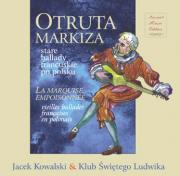
Come la fonte per le sue traduzioni l'autore si è servito del libro di Henri Davenson (Henri-Irénée Marrou ), „Le livre des chansons”, Editions de la Baconnière, Neuchâtel 1982.
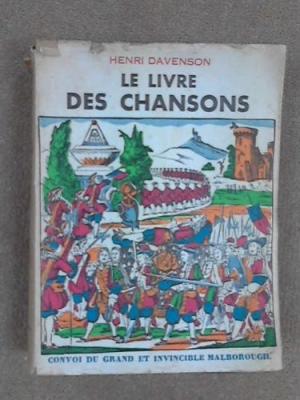
Da parte mia mi sono permesso di restituire al povero re il suo nome nella forma originale francese.
Se volete, potete sostituire il testo o lasciarli tutte e due a confronto. Decidete voi.
L'opera di Jacek Kowalski è molto più larga. Infatti, il nome di uno dei suoi album "Otruta markiza", nonché il titolo di uno dei suoi programmi è stato prestato dalla vecchia canzone francese "Proclame (oppure: Choix) du Roy", cioè, il brano rivisitato e fatto conoscere in Italia da De André come "Il re fa rullare i tamburi". Fattemi sapere se siate propensi a proporrlo come un contributo.
Jacek e anche l'autore della traduzione di "Le Lais" (Il piccolo testamento, 1457, Parigi) di François Villon.
Sono in possesso di questo libretto comprato dopo il concerto dall'autore stesso.
Ci sono diecine di testi storici francesi tradotti da Jacek Kowalski, e in più tantissimi testi d'autore, scritti da lui in persona che spaziano nell'argomento dalla battaglia di Grunwald, per la Sarmazia fino ai recenti avvenimenti storici e di cronaca. Magari più in là Vi mando qualcosa.
C'è per esempio una canzone francese che è stata spaciata nel 800 come il canto di vandeiani "Les bleus sont la". Vi può interessare?
Salud
Powracał z wojny król Renaud,
Wnętrzności dzierżał ręką swą,
Ujrzała matka z murów go,
Jak wracał syn jej, król Renaud.
Renaud, Renaud, rozwesel się,
Powiła żona dziecię twe,
Ni żona ma, ni dziecię me
Już nigdy nie ucieszą mnie.
Do domu matko moja idź,
Niech białe łoże ścielą mi,
Bo nim przeminie północ to
Wyzionie ducha król Renaud.
Pościelcie mi na dole tu,
Bym żonie nie przerywał snu
I nim wybiła północ to
Wyzionął ducha król Renaud.
Zaledwie błysło światło dnia,
Służący uderzyli w płacz,
A nim śniadanie miano dać,
Służące rozpoczęły łkać.
Ach, matko, matko, powiedz mi
Po kim to płaczą ludzie ci,
To moje dziecko zginął koń,
U wodopoju runął w toń.
Ach, po cóż, po cóż, matko ma
Po jednym koniu płakać tak,
Gdy wróci z wojny król Renaud
Przywiezie mi piękniejszych sto.
Ach, matko ma, na miły Bóg,
Dlaczego młota słyszę stuk,
To moje dziecko cieśle dwaj
Podłogę nową robią nam.
I wreszcie zdrowa była tak,
Że z łoża zapragnęła wstać,
A nim minęło osiem dni
To do kościoła chciała iść.
I weszła do kościoła, gdzie
Płonącą świecę dano jej,
Uklękła i u swoich stóp
Ujrzała w ziemi świeży grób.
Ach, matko, cóż ten znaczy grób,
Który ujrzałam u mych stóp,
Nie zmilczę więcej córko to
Tu pochowany jest Renaud.
O ziemio, ziemio, rozstąp się
I z moim królem pochłoń mnie,
Ziemia się rozstąpiła w głąb
I z królem pochłonęła ją.
Contributed by Krzysiek - 2017/9/10 - 21:41
Muma lui Ştefan cel Mare
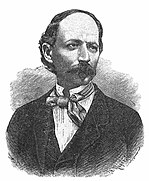
Pe o stâncă neagră, într-un vechi castel,
Unde cură-n poale un râu mititel,
Plânge şi suspină tânăra domniţă
Dulce şi suavă ca o garofiţă,
Căci în bătălie soţul ei dorit
A plecat cu oastea şi n-a mai venit.
Ochii săi albaştri ard în lăcrimele
Cum lucesc în rouă două viorele;
Buclele-i de aur cad pe albu-i sân;
Rozele şi crinii pe faţă-i se-ngân.
Însă doamna soacră lângă ea veghează
Şi cu dulci cuvinte o îmbărbătează.
II.
Un orologiu sună noaptea jumătate,
În castel în poartă oare cine bate?
Eu sunt, buna maică, fiul tau dorit;
Eu, şi de la oaste mă întorc ranit.
Soarta noastră fuse crudă astă dată:
Mica mea oştire fuge sfărămată.
Dar deşchideţi poarta... Turcii mă-nconjor...
Vântul suflă rece... rănele mă dor!
Tânăra domniţă la fereastră sare.
“Ce faci tu, copilă?”, zice doamna mare.
Apoi ea la poartă atunci a ieşit
Şi-n tăcerea nopţii astfel i-a vorbit:
“Ce spui tu, străine? Ştefan e departe;
Braţul său prin taberi mii de morţi împarte,
Eu sunt a sa mumă; el e fiul meu;
De eşti tu acela, nu-ţi sunt mumă eu!
Însă dacă cerul, vrând să-ngreuieze
Anii vieţii mele şi să mă-ntristeze,
Nobilul tău suflet astfel l-a schimbat;
Dacă tu eşti Ştefan cu adevărat,
Apoi tu aice fără biruinţă
Nu poţi ca să intri cu a mea voinţă.
Du-te la oştire! Pentru ţară mori!
Şi-ţi va fi mormântul coronat cu flori!”
III.
Ştefan se întoarce şi din cornu-i sună,
Oastea lui zdrobită de prin văi adună.
Lupta iar începe... Duşmanii zdrobiţi
Cad ca nişte spice, de securi loviţi.
Flavio Poltronieri - 2020/1/14 - 17:57
Dimitrie Bolintineanu - Translated by Daniel Ionita
I
On a dark old mountain, in an ancient keep
Where a brook flows rushing in the valley deep,
The young princess, sighing, weeping in her splendour
Sweet and oh-so-precious, like a flower, tender;
Because in the battle, her beloved prince
Went to lead his army, and he vanished since.
II
An old horologe chiming, splits the night in two
Who’s knocking at the gate, wanting to come through?
“It is I, dear mother, your beloved son;
Coming from the battle wounded and undone.
Our fate was harsh and cruel, merciless this time:
And my little army’s shattered, in the grime.
Open now the gate; the Turks are on my tail…
And the wind is chilly and my wounds are vile!”
Rushing to the window, is the princes, keen.
“What are you doing, young one?”, asks the grand old queen.
She would then descend toward the gate shut tight
With these words to utter through the silent night:
“Who are you, o stranger? Stephen is away;
His strong arm is hurling his rivals to dismay.
Surely I’m his mother, and he is my son;
But I’m not your mother, if you are this one!
Still, if God in Heaven - wishing me to mourn
And my days be saddened and my years so torn –
Had your soul, so noble, in this manner changed,
If indeed you’re Stephen and are thus deranged,
Know that without triumph and the foes repressing -
Here you cannot enter; not without my blessing.
Go back to your army! For your lands to die
And your tomb be crowned with flowers to the sky!”
III
Stephen then returns, and from his horn he roars
While his shattered army from dark valleys soars.
The battle is renewed and the foes are smitten
Like the ears of corn which by the scythe are bitten.
Riccardo Venturi - 2020/1/14 - 23:15
Di cognome faceva Cosmad, ma assunse quello di Bolintineanu dal nome del villaggio dove era nato. Durante i moti rivoluzionarî valacchi del 1848, a cui prese parte, diresse il giornale Popolul suveran. Fu anche lui un traduttore, (per esempio de "I Miserabili") ed è stato Ministro dell'Istruzione pubblica sotto Cuza oltre che fondatore dell'università di Bucarest.
In un vecchio castello su una roccia nera,
Dove nella valle c'è un fiume di muffole,
La giovane sovrana piange e sospira
Dolce e sudata come un garofano
Perché il suo desiderato marito è andato in battaglia
Se n’è andato con l’esercito e non ritorna più
I suoi occhi blu bruciano di lacrime
Come suonano due violini nella rugiada;
I suoi ricci d’oro cadono sul bianco seno
Le rose come gigli sulla sua faccia, ho visto.
Ma la madre, la madre accanto a lei la sta guardando
Con parole dolci, per confortarla.
Un orologio suona mezzanotte,
Chi bussa al cancello del castello?
- Sono, buona madre, il tuo desiderato figlio;
Torno ferito dall’esercito.
Il nostro destino questa volta fu crudele:
Il mio piccolo esercito è stato schiacciato.
Ma apri il cancello ... I turchi mi circondano ...
Il vento soffia freddo ... le ferite non mi mancano!
Giovane alla finestra del sale.
- Che stai facendo piccolo? dice la grande signora.
Quindi uscì dalla porta
E nel silenzio della notte parlò così:
- Che dici, straniero? Stefan è via;
Il suo braccio, ha attraversato migliaia di campi morti,
Sono una mamma; lui è mio figlio;
Se sei quello, non sono tua madre!
Ma se il cielo, volendo intorpidire
Gli anni della mia vita e per rattristarmi,
La sua anima nobile così lo ha cambiato,
Se sei davvero Stefan,
Allora sei qui senza vittoria
Non puoi entrare con la mia volontà.
Va' in ostaggio! Muori per il Paese!
E la tua tomba sarà incoronata di fiori!
Stefan torna al campo e richiama
Il suo esercito schiacciato, che si raduna dalle valli.
La lotta ricomincia ... i nemici sono schiacciati
Cadono come spighe, di colpo secchi.
Flavio Poltronieri - 2020/1/15 - 10:11
Riccardo Venturi - 2020/1/15 - 10:34
Flavio Poltronieri - 2020/9/21 - 18:38
VD - 2023/4/14 - 02:46
Flavio Poltronieri - 2023/5/8 - 19:01
Riccardo Venturi - 2023/5/8 - 21:19
Flavio Poltronieri - 2023/5/9 - 15:15
Riccardo Venturi - 2023/5/9 - 20:53
presente nel cd "Le Poème Harmonique/Vincent Dumestre - Au Marches du Palais (Romances et complaintes de la France d'autrefois)" 2001 (che contiene anche "La Pernette", di nostra malicorniana memoria), nella quale viene sottolineata l'origine gregoriana della complainte ispirata al vespro "Ave Maris Stella".
Flavio Poltronieri - 2023/6/13 - 11:01
Riccardo Venturi - 2023/6/13 - 11:24
Note for non-Italian users: Sorry, though the interface of this website is translated into English, most commentaries and biographies are in Italian and/or in other languages like French, German, Spanish, Russian etc.


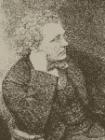
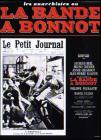


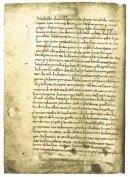
THIS PAGE IS UNDER RESHAPING AND ENLARGEMENT
PAGE EN COURS DE RESTRUCTURATION ET ACCROISSEMENT
L’origine della ballata è notevolmente complessa: essa sembra essere nata da un nucleo originale del XIII secolo che racconta il ritorno del conte Renaud. La vicenda si è poi impiantata su una canzone del XVI secolo, Le comte Redor, derivata da una leggenda scandinava assai diffusa in tutta Europa e che ha dato origine a numerosi testi nelle diverse Balladries di tutti i paesi. Note ballate parallele del Roi Renaud sono ad esempio la catalana Comte Arnau (Arnau è chiaramente il corrispondente di Renaudrà meglio, il “filone” europeo di questa ballata è ben più vasto.
Nota testuale: Il testo qui sotto presentato è quello stabilito da Georges Doncieux (1856-1903) (Romania 114, 1900, pp. 219-256). Abbiamo ovviamente rinunciato a dare i testi di altre versioni, sia per il loro grande numero, sia perché tutti sono fondamentalmente molto simili.
In Francia, gli studi approfonditi su questa ballata ebbero inizio nel 1866, quando lo studioso M. G. Paris, in un articolo sulla Révue Critique (1866, n° 18) sottopose ad un’analisi comparativa le quattro o cinque versioni allora note della canzone. Più tardi, il grande filologo e folklorista danese Svend Grundtvig (1824-1883) dedicò alla ballata francese un intero capitolo della sua monografia Elveskud che reca il chilometrico titolo di: Elveskud: dansk, svensk, norsk, færœsk, islandsk, skotsk, vendisk, bœmiesk, tysk, fransk, italiensk, katalonsk, spansk, bretonsk Folkevise (“Elveskud: una canzone popolare danese, svedese, norvegese, faroese, islandese, scozzese, venda [= serbolusaziana], boema, tedesca, francese, italiana, catalana, spagnola e bretone”), pubblicata a Copenaghen nel 1881. Già dal titolo dato dal Grundtvig alla sua monografia è possibile intuire l’estensione paneuropea di questo filone ballatistico: in essa, veramente fondamentale, il Grundtvig seguì tutta l’evoluzione del tema attraverso le letterature popolari europee a partire, in modo del tutto naturale dato che era danese, dalla ballata del suo paese. Non tardò il coinvolgimento diretto di Francis James Child (1825-1896), che con il Grundtvig ebbe un continuo e profondo scambio epistolare per quello che rimane il canone classico delle ballate tradizionali angloscozzesi: English and Scottish Popular Ballads, pubblicato in cinque volumi a partire dal 1882. Il Child si occupò in modo particolare di quella che appare essere la corrispondente ballata scozzese afferente al tema, vale a dire Clerk Colvill (Child #42), presente nel secondo volume delle Child Ballads uscito nel 1884. Come tutte le monografie introduttive ad ogni singola ballata analizzata dal Child, però, si tratta di un’analisi relativamente concisa accompagnata da una sterminata bibliografia. Le opere del Grundtvig e del Child ebbero senz’altro il merito di far conoscere dettagliatamente i tipi settentrionali del filone, l’analisi dei tipi meridionali (romanzi) restò carente fino al cospicuo studio di Georges Doncieux (1900), vero e proprio fondatore della “renaudologia” con il suo studio pubblicato nel n° 114 di Romania, 1900. Il Doncieux, avendo nel 1900 molto più materiale a disposizione, poté redigere il suo studio che resta, a tutt’oggi, il più completo sulla ballata presa dal suo côté francese; poiché questa pagina, sin dai suoi lontani inizi, è stata concepita e costruita esattamente da questo punto di partenza, è giocoforza ricorrere allo studio del Doncieux come riferimento.
Da valente e rigoroso filologo qual era, Georges Doncieux enunciò dapprima tutto il piano dell’opera. Sua prima (ed ovvia) preoccupazione fu quella di stabilire un testo critico della ballata. Ma che cos’è un “testo critico”, si chiederanno (forse) i miei piccoli lettori? Nella filologia classica, ed in particolare in quella Lachmanniana con il suo celeberrimo metodo, un “testo critico”, in grandi linee, è un testo stabilito confrontando tutte le versioni (manoscritte, citate ecc.) disponibili, in modo da ricostruire la dizione che si ritiene più vicina a quella originale (“Archetipo”).[à suivre]